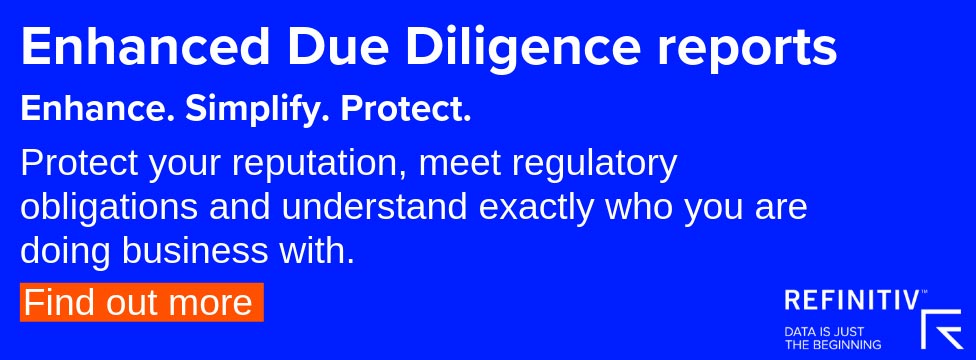Extractive industry risk includes potential exposure to corruption, social and human rights abuses or environmental crime. How is enhanced due diligence able to protect investors from the complex web of associations at play within mining or oil and gas operations?
- Extractive industry risk is often found in jurisdictions known for political and operational instability and corruption, social injustices, human rights abuses, or environmental crime.
- Enhanced due diligence is able to deliver critical, targeted intelligence that enables investors to avoid inadvertently funding illegal or unethical activities.
- EDD can shed light on the complex web of associations that are at play, providing valuable insights into the nature and extent of potential extractive industry risk.
Social license has become a key consideration within the extractive industry.
Those involved in or exposed to the sector should not underestimate the importance of widespread public approval of any project, and relying simply on acceptance by investors and other direct stakeholders is no longer a strategy for success.
In an era characterized by the extensive reach of online media and heightened awareness of environmental and social issues, abuses taking place at extractive industry sites in even the most remote resource hubs can quickly be brought to the attention of investors in financial centers, damaging the financial and reputational profile of the site operator and connected entities.
Problems arising from or related to social license can create fundamental challenges for extractive industry projects, ranging from loss of share value to legal disputes and potentially devastating reputational damage.
Examples of extractive industry risk
Against this backdrop, extractive industry players must remain cognizant of the range of risks that characterize the industry.
Extractive activity is often located in jurisdictions that are known for political and operational instability and corruption, social injustices, human rights abuses, and environmental crime.
High levels of corruption can undermine the rule of law, leading to an inadequate and ineffective legal framework, and exposure to activities within such jurisdictions introduces both compliance and reputational risk.
The example below shows some of the compliance concerns associated with illegal mining operations, in this case in South America.
Criminal networks connected to the extractive industry often make use of the anonymity afforded by offshore centers, increasing the challenge of identifying the ultimate beneficial owners of assets.
Even if the subject of an enquiry is based in a jurisdiction that offers higher levels of transparency regarding corporate ownership, the nature and extent of this subject’s exposure to heightened risk jurisdictions is often difficult to untangle, given the labyrinthine nature of the global financial sector.
These risks have implications not only for investors with direct exposure to the industry — such as those buying stakes in the physical infrastructure of mines — but also for those with indirect exposure, such as banks who may be onboarding high-net worth individuals whose family inheritance derives in part from petroleum production.
Managing the risk exposure
Targeted, bespoke EDD reports can help investors manage this risk exposure.
Where initial screening detects heightened risk, EDD steps in to deliver critical, targeted intelligence that enables investors to avoid inadvertently funding illegal or unethical activities, and further allows effective management of the reputational impact of investments.
EDD reports do not follow a one-size-fits all approach and can be tailored to be more or less complex depending on the nature and extent of the perceived risk.
Basic EDD reports offer appropriately targeted multi-jurisdictional screening against sanctions lists, regulatory and litigation databases, and other public-domain sources, and can either indicate a need for further research or give the green light to proceed.
Media and even official sources of information available within higher-risk jurisdictions are not always accurate, reliable or objective.
In these instances, premium EDD reports can be structured to include interviews with expert industry sources that can make sense of contradictory media accounts or incomplete official filings, and add insight beyond what is available in the public domain.
Enhanced due diligence
The targeted nature of enhanced due diligence (EDD) can shed light on the complex web of associations that are at play within the extractive industry, and provide valuable insights into the nature and extent of potential risk.
Extractive industries, e.g mining, are facing increased pressures due to the growing need for acceptance from the general public. Does your company run enhanced due diligence checks for potential areas of public concern? Read more on enhanced due diligence https://t.co/DBi746Iif2
— Refinitiv, an LSEG business (@Refinitiv) July 3, 2019
Drilling down to thoroughly understand the risk landscape before proceeding with any investment — either direct or indirect — should top your list of priorities.
Refinitiv offers EDD reports tailored to support specific investment decisions.
Our reports are powered by our formidable global research teams and have become an invaluable tool to help investors ensure compliance and make better decisions based on targeted, bespoke intelligence.





